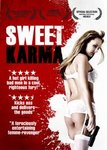But what is the evidence corroborating your 'karma' moving the markets?
Sorry for delay - my car was stolen yesterday, so that kept me pretty busy with probably a couple dozen phone calls. (Yes, very ironic that we're discussing karma here and my car gets stolen, but I've already had some good things come of it.)
Anyways, Shakone, the evidence, albeit anecdotal, is very clear (at least to me.)
Stipulations (and chronology) are as follows:
1) The system is mechanical. There is no ambiguity.
2) My behavior did not reflect that of a winner - again, I was doing the things I knew I probably shouldn't be doing - overindulgence, procrastinating, justifying laziness, sleeping until 12 etc . . .
3) System tests worked, system live failed.
4) "Integrated" that nothing was changing because I, in fact, was not changing.
5) Began behaving like a successful individual and began doing the things I had always told myself (and others) I would do "if I were rich."
6) System tests worked, system live . . . worked.
In my experience, my behavior was the common denominator. Don't get me wrong, I'm not perfect (even humans "retrace"), but there
remains an uncanny correlation between my behavior and MY system's performance (notice, I'm not saying, my behavior and the MKT.) I do not have a high enough perspective to claim to you now it IS IN FACT THE CAUSE, but I can tell you they are very closely related - and after applying my own intellectual analysis, I have concluded FOR MYSELF, (not for you) that "Karma" (no, not "giving to charity" so the "market will give back" - that's not Karma, that's baseless rubbish - it is simply how honest you are being with yourself), indeed, has
a lot to do with how you fare on the MKT. You decide for yourselves.
SO - The ONLY question left here and now is - Am I completely full of it or not? Am I making this up? My personal experiences would ring very relevant to other people, "If only they knew I was telling the truth." It is a shame that the world is full of liars and my declaration here to you holds less bearing. Inasmuch, even if all of this is loads of crap, there is nothing - NOTHING - I have suggested, of which if you took heed, that would bring you any harm whatsoever . . . in fact, you WILL be met with reward.

